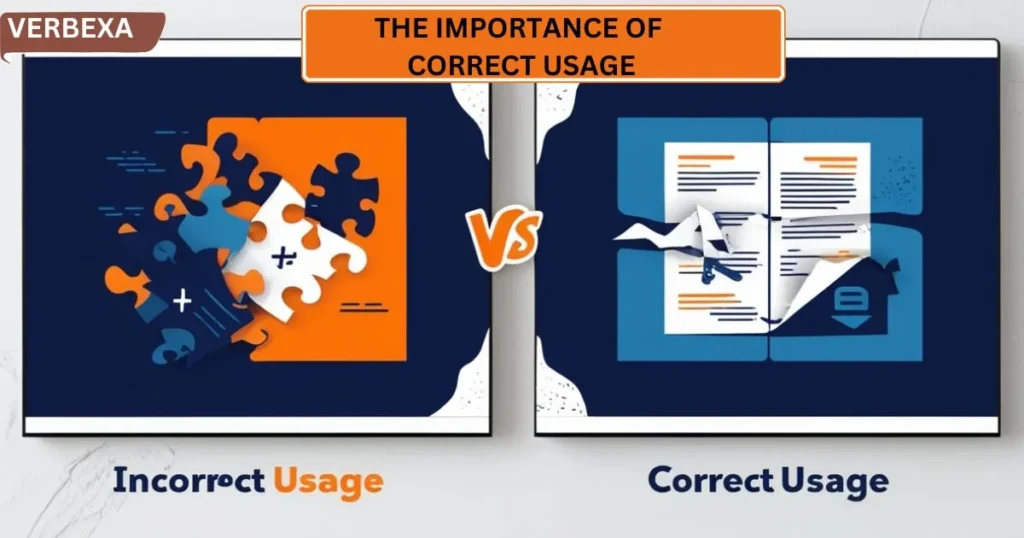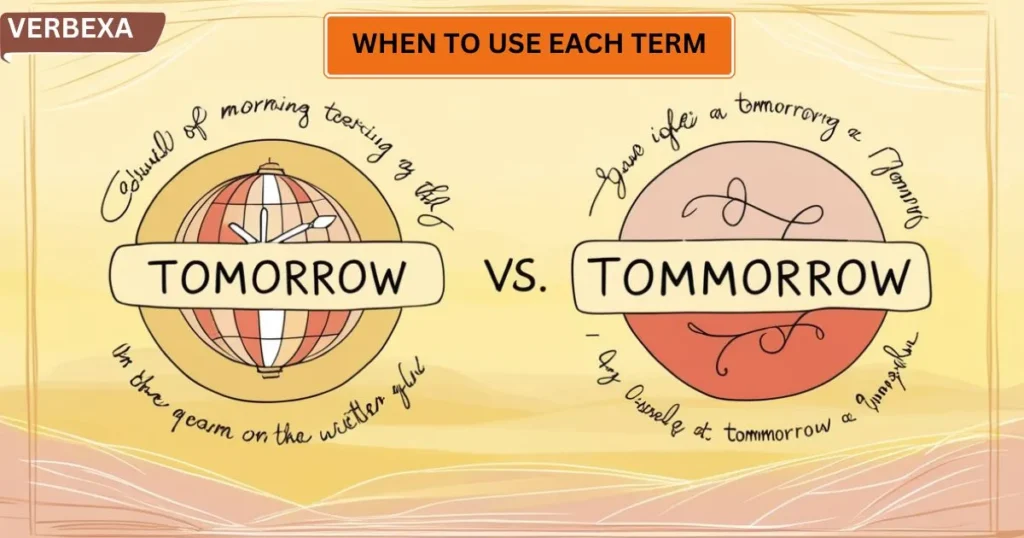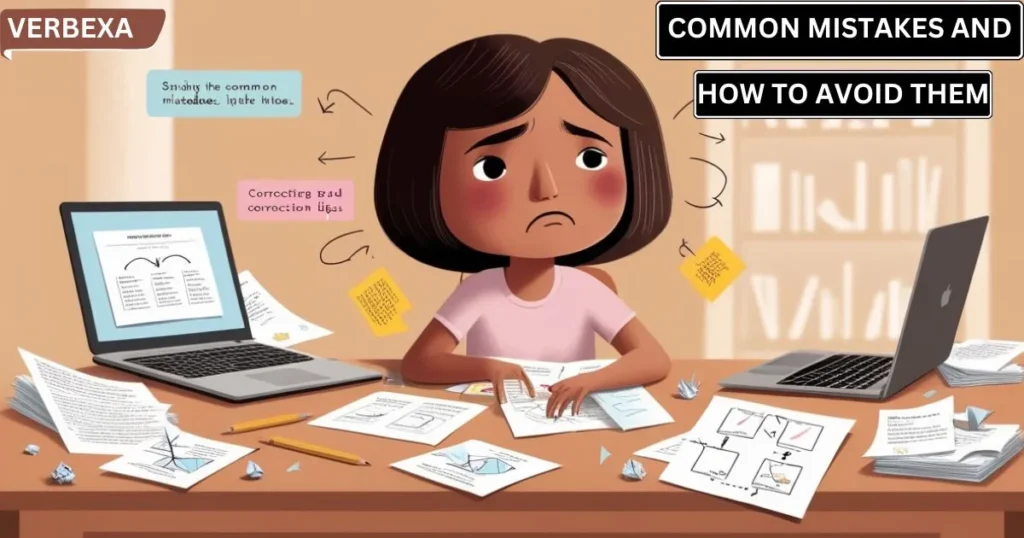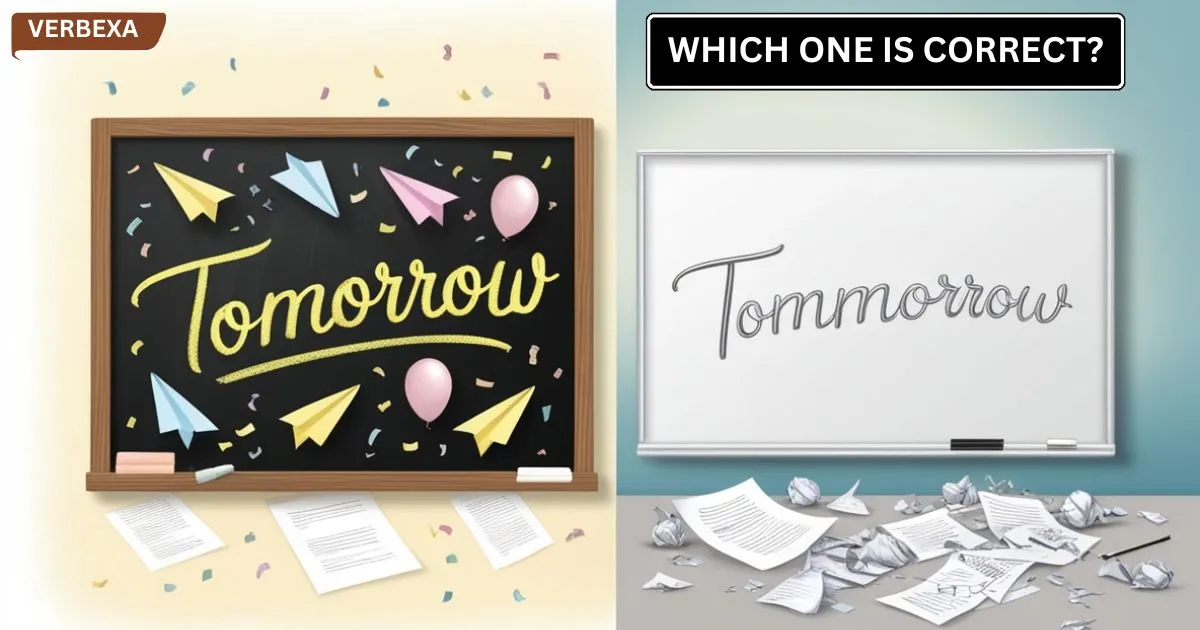When you’re typing up a text or drafting a quick message, you may find yourself unsure whether to use “tomorrow” or tommorrow. It’s an easy mistake, and you’re not alone in the confusion! These two terms are often mixed up because they sound almost identical when spoken but have distinct differences in meaning and spelling. Understanding the difference between them is key to sounding polished in your writing and communication.
This article will explore the correct usage of “tomorrow” and “tommorrow”. By the end, you’ll understand how to use them confidently and avoid common mistakes that could make your writing look less professional. So, let’s dive in.
The Importance of Correct Usage

Confusing “tomorrow or tommorrow” is a common typo and a source of minor frustration for both writers and readers. While they may sound the same when spoken, these words have very different meanings and implications in written form. The issue is so frequent that many people aren’t aware that one of the terms is entirely incorrect.
When you mistakenly use the wrong spelling, especially in formal writing, it can undermine your credibility. This makes it important to clearly understand the correct spelling and application of the term you want to use. Let’s break it down:
Practical Example:
- Correct Usage: “I’ll see you tomorrow for our meeting.”
- Incorrect Usage: “I’ll see you tommorrow for our meeting.”
The second example not only contains a spelling error but also leaves the reader wondering if the writer understands the standard spelling. So, what is the spelling of tomorrow? Let’s figure that out!
Definitions and Usage
Tomorrow

“Tomorrow” is the correct term, and it refers to the day after today. It is a noun, and sometimes it can be used adverbially to describe something happening in the near future. The word comes from the Old English to morgen, meaning “on the morrow” (the day after today).
Here are some examples of how “tomorrow” is used:
- As a noun: “We will leave tomorrow.”
- As an adverb: “The train departs tomorrow morning.”
The primary role of “tomorrow” is to indicate time. It always signifies the next day relative to the current day or any point of reference.
Tommorrow

On the other hand, “tommorrow” is a common misspelling of the word “tomorrow.” It has no valid definition in the English language. The extra “m” in this spelling is simply a typographical error that occurs due to muscle memory or a rushed typing habit.
In written communication, “tommorrow” is always wrong, and its presence should be corrected to “tomorrow”. The mistake often happens because people type quickly and accidentally double the “m” in the word.
Key Takeaways:
- “Tomorrow” is the correct word.
- “Tommorrow” is a misspelling and should always be corrected.
Tommorrow or Tomorrow: When in doubt, always use “tomorrow”.
Comparison: A Quick Reference

| Aspect | Tomorrow | Tommorrow |
|---|---|---|
| Meaning | The day after today | No valid meaning; misspelling of “tomorrow” |
| Part of Speech | Noun or Adverb | Incorrect form, not a recognized word |
| Correct Usage | Used in sentences to describe the next day or future events | Never used in formal writing or speech |
| Example Sentence | “The meeting is scheduled for tomorrow.” | Incorrect: “We’ll meet tommorrow.” |
As seen in the table, “tomorrow” is the only acceptable spelling, while “tommorrow” is a common error and should be avoided.
When to Use Each Term

So now that we know “tomorrow” is the only correct term, the next step is understanding when to use it. Here’s how to make sure you’re using it properly in different contexts:
1. Describing the Day After Today
When you refer to the day after the current one, “tomorrow” is the right choice. This could be in relation to personal plans, events, or expectations.
- “I’ll be out of the office tomorrow.”
- “Tomorrow’s weather looks great!”
2. Indicating Future Actions
If something is going to happen in the near future, you can use “tomorrow” to convey that it will occur the next day.
- “We will finish the project tomorrow.”
- “He promised to call me tomorrow.”
3. In Phrasal Expressions
There are some common expressions with the word “tomorrow” that are used to convey urgency or inevitability. These expressions are often used in both formal and informal speech.
- “Don’t put off until tomorrow what you can do today.”
- “Tomorrow is another day.”
In all these scenarios, “tomorrow” is the correct choice. “Tommorrow” would be inappropriate and should be corrected.
Everyday Usage Examples

Let’s look at some everyday examples that show the proper use of “tomorrow.” These examples should help reinforce when and how to use the correct term.
- Example 1 (Informal Context):
“I can’t wait to hang out with you tomorrow!” - Here, “tomorrow” is used to talk about plans with a friend.
- Example 2 (Professional Context):
“I’ll send you the report tomorrow by noon.” - In this formal sentence, “tomorrow” is used to refer to a specific time frame.
- Example 3 (Event Planning):
“Our team meeting is scheduled for tomorrow afternoon.” - This example uses “tomorrow” to refer to an event set for the next day.
- Example 4 (Everyday Discussion):
“I have to pick up my dry cleaning tomorrow.” - Another simple use of “tomorrow” to talk about a task in the future.
As shown, “tomorrow” can be used in both formal and informal contexts to describe events or plans that will occur the following day.
Common Mistakes and How to Avoid Them

Now that we know how to use “tomorrow” properly, it’s time to address some common pitfalls that might cause confusion:
1. Typing Errors (Tommorrow)
This is by far the most frequent mistake. When typing quickly, people may accidentally add an extra “m” and end up with “tommorrow”. To avoid this, slow down while typing and double-check your spelling before hitting send or submit.
2. Confusing Similar Words
Sometimes, people confuse “tomorrow” with words like “morrow” or “today”. While “morrow” refers to the next day in a more poetic or archaic sense, “tomorrow” is the modern, commonly accepted term. So, stick with “tomorrow” unless you are intentionally using archaic language.
3. Overusing the Term
Using “tomorrow” too often can make your writing sound repetitive. Consider varying your expressions by using synonyms or restructuring your sentences:
- Instead of “I’ll see you tomorrow,” you might say, “I’ll meet you the next day” or “I’ll see you in 24 hours.”
Conclusion: The Key Difference
The primary takeaway from this article is simple: “tomorrow” is the correct term, and “tommorrow” is a common misspelling. By understanding and using the proper spelling, you can ensure that your writing appears polished and professional. This is especially important in formal contexts, such as business communications, academic writing, or any situation where clarity and correctness matter.
To summarize:
- “Tomorrow” refers to the day after today and can be used in various contexts.
- “Tommorrow” is a misspelling and should be avoided.
Now that you have the knowledge to distinguish between these terms, you can confidently use “tomorrow” in your writing without worrying about making this common mistake! Always remember, “what is the spelling of tomorrow” is just “tomorrow”—never “tommorrow”.

This author is a passionate linguist and grammar enthusiast, dedicated to helping individuals master the art of language. With years of experience in teaching and editing, she brings clarity and precision to every sentence. Tina’s mission is to empower writers of all levels to express themselves with confidence and excellence.

